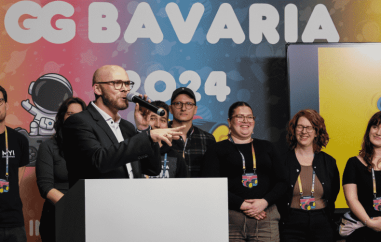African woman's perspective on gaining asylum in Germany Social exclusion from language courses
Integration has become politically a mainstream issue which has dominated the discussion of immigration in recent years. However many migrants are looked upon primarily as people with deficits that have to be made up for in integration courses and yet we migrants look at it as an opportunity for quality participation in social, economic, political and cultural life such as housing, health, work and skills, safety, community and society. And that of cause demands an effort not only from the refugees but also from the locals themselves. In other words, with reference to the practical work done in the field of integration a concept of integration has about as much value and benefit as the statement that eating food is not only important for the body, but can also lead to people being overweight. Therefore Integration in language courses has to involve more than just the mere learning of the German language but also getting good qualifications and being gainfully employed.
However many of us interested in being integrated are being sidelined by the one-sided adaptation of immigrants into government integration programs. And so many integration Projects are only geared towards recognised asylum seekers and persons under subsidiary protection living out thousands of refugees requiring the same opportunity. So unless one is a recognised asylum seeker, they will not be freely adopted into the government's integration programs like language classes or other professional training courses. And yet the expectations placed on all migrants and asylum seekers, recognised or not when it comes to integration are almost the same. For example, immigrants should make an effort to get a job, to learn German, to respect the laws of the land and to make friends with Germans. Still, whether recognised or not. Therefore with the one sided adaptation of immigrants into the intensive government integration programs, leaves the less privileged or those not recognised to depend on language integration programs from charitable organisations like Bayerisches Red Cross, Caritas, Fluchtlingsrat and many others, which of cause are not intensive programs and usually taking place once or twice a week for one to two hours. And yet the government programs are daily run programs lasting up to six hours a day.
We all know that specific vocabulary beyond everyday language use is often necessary to successfully access the job market or even better integrate in a community. And that can only be acquired when one attends regularlanguage classes. However both Governments and locals believe that integrating asylum seekers makes them feel more at home and it makes them harder to return to their home countries in case of failed asylum cases. What makes things more difficult is that this process is being hampered by fears and feelings of insecurity not only from the politicians but also from the society.
I know a number of asylum seekers who have been here more than five years and still have not been adopted in the language integration programs but some of them have rather learnt the language by being in contact with the locals. On the contrary some locals are however shying away from getting in touch immigrants with the fear being conned in one way or the other. Some of them look at us as people who are only here in search of greener pastures.
On the other hand some refugees don't even bother to be integrated into Language programs with out knowing the fate of their cases. Saying it's a waste of time. Their argument is that when they get recognised they will be forced to attend integration classes any way, so why waste time attending language courses now when one can use this time to try to find odd jobs to do. But we all know that language acquisition and education for refugees and migrants are major thematic elements of the support that any country can offer immigrants so as to impart knowledge about German culture, history and values.
In my view we asylum seekers need Integration with out segregation whether recognised or not since modern societies aren't integrated only through homogeneity but also by their ability to ignore differences.
contact@uniivaa.com
2015-10-16 01:44:34Canada provides a good example of a country in which integration of immigrants has worked fairly well. There are large numbers of immigrants living in Canada who came from various countries. Canada really opened its borders to various types of immigrants in the 1970s. Now all of the major Canadian cities are populated mostly by immigrants and many more come to Canada each year. One of the challenges though that immigrants to Canada face is in getting a job as it occasionally seems that employers in Canada have a preference for Canadians. Even this, however, has been overcome with effort (there have even emerged sites such as jobsaloon.com among others that focus on finding jobs for people wishing to immigrate to Canada).















































